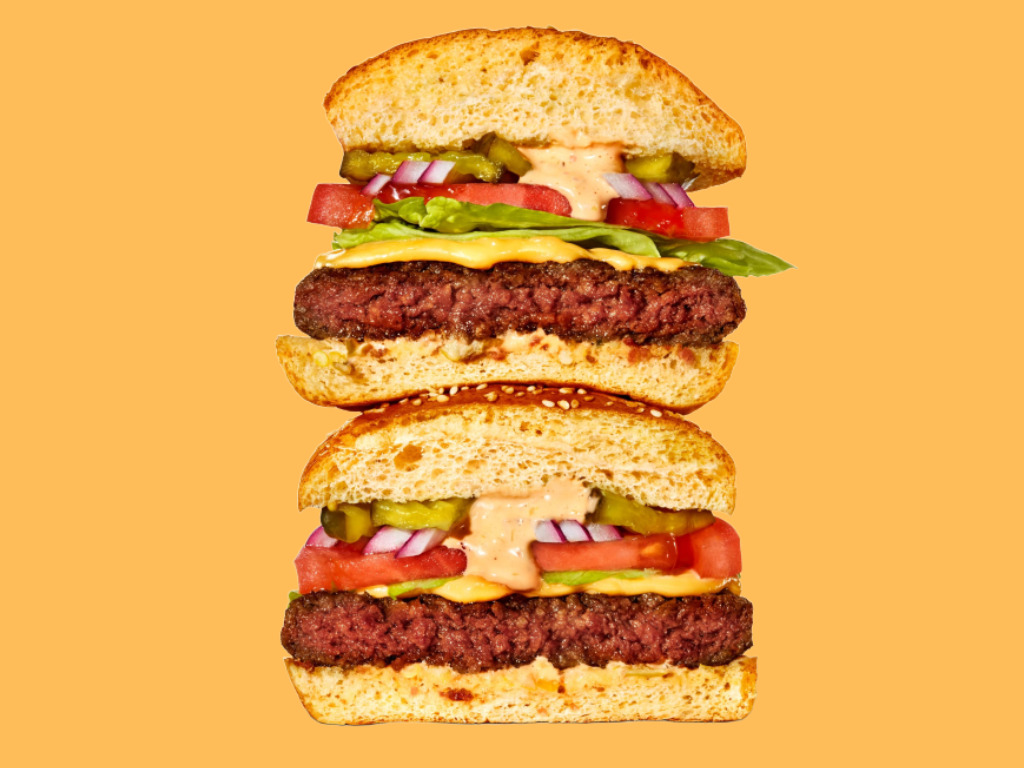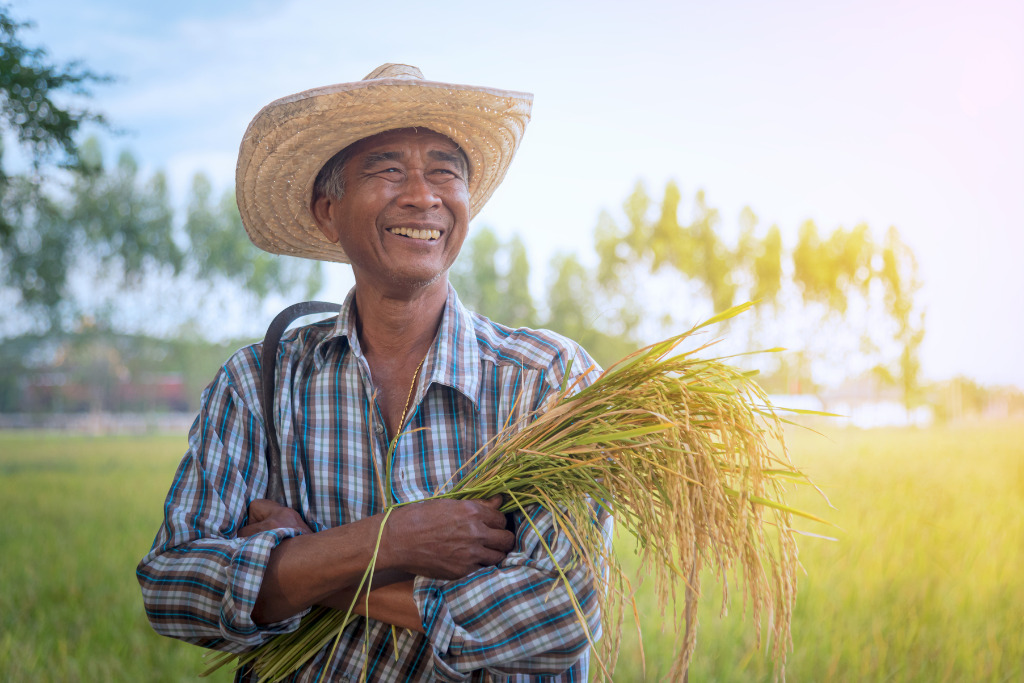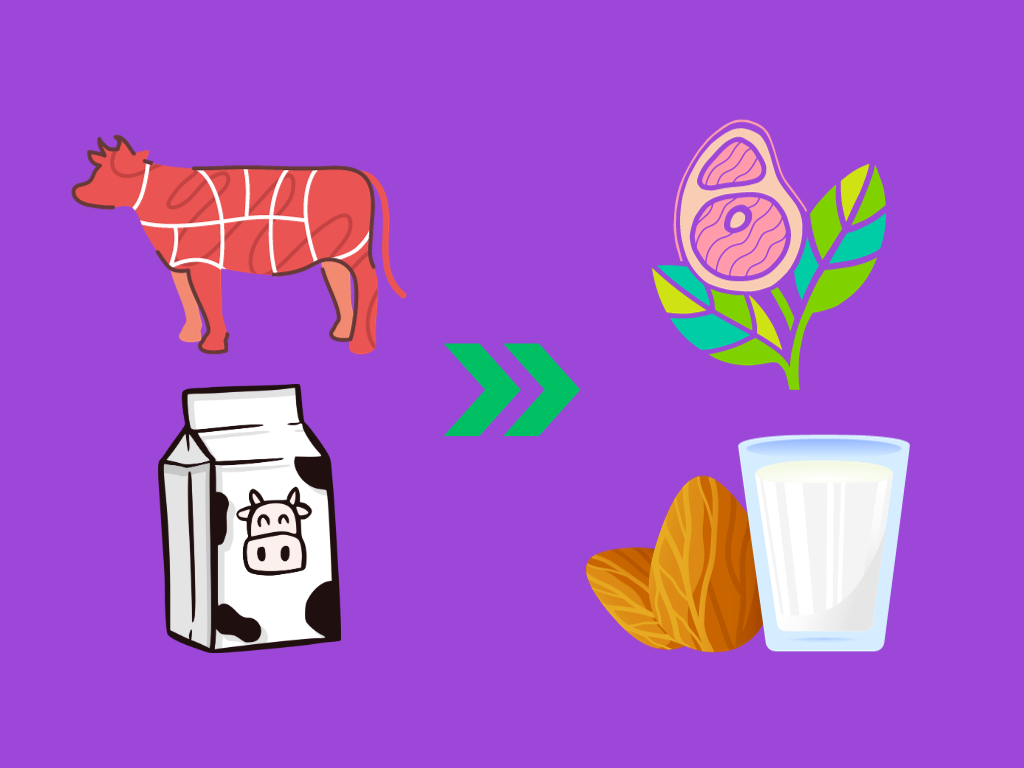4 Mins Read
Replacing 50% of our meat and dairy intake with plant-based alternatives by 2050 could result in significant climate benefits, reducing agricultural and land-use emissions by 31% and halting the destruction of forest and natural land, according to a new peer-reviewed study.
Shifting to vegan meat and dairy – and reforesting the land spared from livestock production – could double climate benefits, halve the future decline of ecosystems and significantly reduce food system emissions by 2050. If 50% of the leading animal products (pork, chicken, beef and milk) are substituted, land used for livestock would decrease by 12% and water use would be slashed by 10% from a 2020 baseline.
The independent study, published in the peer-reviewed Nature Communications journal yesterday with inputs from alt-meat giant Impossible Foods, found that replacing these animal products could effectively stop forest and natural land degradation – especially in sub-Saharan Africa, China and Southeast Asia – conserve water, and reduce biodiversity loss. This underscores the mission of the newly formed African NGO Plenty Foundation.
In a business-as-usual scenario, demand for meat will rise globally – people are set to be eating 14% more meat by 2030 – and this will lead to a 4% increase in agricultural land. Replacing meat and milk with vegan alternatives would instead shrink this area by 12% by 2050. And there will be additional food security benefits, with undernourishment declining by 3.6% globally, reducing the number of undernourished people by 31 million.
The research aligns with multiple studies that have measured the impact of animal agriculture on the environment. A 2021 revealed that meat accounts for nearly 60% of all emissions from food, while livestock farming has been found to produce between 11-19.5% of the planet’s overall emissions. Further research has shown that animal-derived foods like meat and dairy cause twice as many emissions as plant-based foods, and vegan diets can reduce emissions, water pollution and land use by 75% compared to meat-rich diets.
A similar study has shown that we can avoid 100 gigatons of emissions if three-quarters of people adopt plant-rich diets by 2050. “Understanding the impacts of dietary shifts expands our options for reducing GHG emissions. Shifting diets could also yield huge improvements for biodiversity,” said study lead Marta Kozicka.
The need for policy intervention and investment

Co-author Eva Wollenberg acknowledged that a vegan transition would be “challenging and require a range of technological innovations and policy interventions”. It makes events like the UN climate summit COP28 all the more important – this year’s conference is said to be more focused on food than ever before, and will feature policy announcements to help boost food security and reduce agrifood’s climate impact. Additionally, COP28 will be serving mostly vegan food this year.
A shift in consumer perception is vital for increased plant-based adoption. A recent Gallup poll found that 74% of Americans don’t think eating less meat will help the climate crisis, and that figure rises to 77% for dairy. This can be partly explained by the underreporting of livestock farming’s impact on the environment – one study has found that 93% of all climate media coverage doesn’t mention animal agriculture.
The gap in funding will need to be addressed. Research shows that livestock farmers get 1,200 times more public funding in the EU than meat alternative companies, and 800 times more in the US. It further highlighted that 97% of all research and innovation spending between 2014-20 went to animal farmers, aimed at improving production, while in the EU, cattle farmers received at least 50% of their income through direct subsidies.
Public money spent on vegan meat alternatives, meanwhile, was at $42M in this period – just 0.1% of the $35B spent on meat and dairy. “Plant-based meats are not just a novel food product, but a critical opportunity for achieving food security and climate goals while also achieving health and biodiversity objectives worldwide,” said Wollenberg.
Protecting farmers’ livelihoods

Study coordinator Petr Havlík stressed the importance of policy intervention. “While the analysed dietary shifts serve as a powerful enabler for reaching climate and biodiversity goals, they must be accompanied by targeted production side policies to deliver their full potential,” he said. “Otherwise, these benefits will be partly lost due to production extensification and resulting GHG and land-use efficiency losses.”
The authors acknowledge that while the results support the increased consumption of plant-based meat, livestock are still a valuable source of income and nourishment for smallholder farmers. But at the same time, climate change does threaten their livelihoods, so government support will be crucial for a sustainable food shift and better food security.
As the authors wrote in the study: “Appropriate policy and management efforts should be developed to both prevent the environmental risks and to support farmers and other actors in the livestock value chain affected for a socially just transition.”




